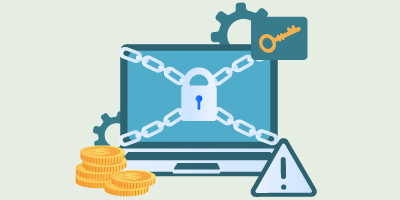Amid a growing shift toward remote and hybrid work in the aftermath of COVID-19, it is not uncommon to find employees using public WIFI at coffee shops, airports, restaurants, and other locations to do business. Public WIFI may be a free and convenient modern perk, but it comes with security risks for businesses.
A few of the dangers of public WIFI for businesses include malware and other forms of cyberattacks that are a threat to sensitive company data and credentials. So, businesses should implement measures that mitigate the security risks of public WIFI and properly train employees to facilitate safer use of these networks.
In this blog post and video, we discuss the security risks of public WIFI for businesses and provide solutions to mitigate them.
Dangers of public WIFI for businesses
If your employees are using public WIFI for work, they risk exposing confidential business communication or security credentials to hackers. Cybercriminals often leverage unprotected public WIFI networks to distribute malware or steal data. Here are three key dangers of public WIFI for businesses.
Man-in-the-middle attack
Man-in-the-middle is a common cyberattack that exploits an unprotected public WIFI network. Vulnerabilities in the network can allow hackers to position themselves between a device and the public WIFI connection to access the communication traveling back and forth. Using this technique, an attacker can remain undetected and intercept any sensitive company data that is being shared over the network.
Hackers can also employ the man-in-the-middle attack technique to send your employees to a malicious, spoofed website that closely resembles your business’ URL. This way, hackers can steal important business login or security credentials and use this information to launch a wider cyberattack against your organization. Check out our website cloning demonstration to see exactly how hackers clone websites.
Malware
Hackers can leverage unprotected public WIFI and distribute malware to devices connected to that network. Malware is a major security threat for businesses and another risk of using public WIFI networks. Cybercriminals can install spyware and other malicious software on your employees’ infected devices, allowing them to quietly access and steal your business’ financial information or login credentials.
Evil twin attack
During an evil twin cyberattack, hackers trick users into connecting to malicious WIFI that is designed to mimic a legitimate public network. Using techniques such as spoofing a secure WIFI connection’s Service Set Identifier (SSID) and captive portal page, hackers can create a fake network that is hard to identify. Once an employee connects to the rogue WIFI network to do business, hackers can view their online activity and access any confidential data being entered into the device, such as login credentials to your organization’s websites or portals.
How to mitigate public WIFI security risks
Users should be cognizant of what network they are connecting to at all times. There may be times where the only network your employees have access to is public, which may seem tempting. Although joining public networks is discouraged, here are some security measures your business can implement to mitigate the dangers of public WIFI.
Use a VPN
Encourage employees to use a virtual private network (VPN) when connecting to a free, public WIFI. A VPN establishes a secure, encrypted tunnel from a device to the internet, making it tough for hackers to snoop on a user’s activity.
Install anti-malware on devices
Apply anti-malware and anti-virus protection to all employee devices to block any unauthorized, malicious access. Further, ensure all employee devices have up-to-date software to leverage any newly released security or bug fixes.
Turn off WIFI auto-connect
Encourage employees to avoid auto connecting to free WIFI and to turn off Bluetooth as well as file sharing when not in use to prevent cybercriminals from dropping malware onto their devices.
Check website security
Train employees to check for the pad lock or HTTPS in the website’s URL before entering any confidential information to ensure that the site is using adequate security measures.
Build employee security awareness
Many employees using public WIFI are likely unaware of the security threat to their business data and devices. So, provide consistent security awareness training to ensure your employees are up to date on the dangers of using public WIFI and well-versed in measures to protect information shared over these networks.
Get a password manager
A strong password is a solid first defense against cyberattacks. Using the same password for multiple accounts is a security risk because a cybercriminal with access to one account can then hack into others linked to that password. Password managers are a digital tool that can encrypt and securely store all passwords, as well as generate unique passwords for different accounts. This can limit the scale of a cyberattack even if a hacker gets access to one password through an infected public WIFI network.
Need assistance with implementing security measures to protect against public WIFI risks?
GraVoc provides expert Information Security and Managed IT Services, which include security awareness training, anti-virus and endpoint protection, password management, and more, to help businesses improve their overall security posture and reduce risk exposure. Check out these services by clicking below!
Related articles
For the Third Year in a Row, GraVoc to Attend Engage Boston as Silver Sponsor
For the third year in a row, GraVoc will attend Engage Boston as a silver sponsor, showcasing our pre-built tech solutions for Bullhorn ATS!
Employee Spotlight: Meet Tracy DeRosa, Practice Lead for Infrastructure & Cloud
In this employee spotlight, we’re featuring our Practice Lead for IT Infrastructure and Cloud and one of our oldest employees, Tracy DeRosa!
Change Healthcare Attack: Ransomware Protection Measures for Healthcare Organizations
In light of the Change Healthcare attack, we explore why hackers target healthcare and how healthcare can defend against ransomware.




